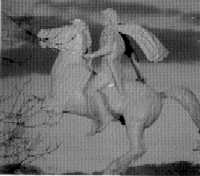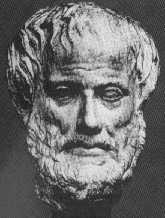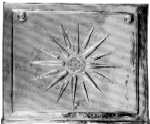ALEXANDER THE GREAT

Macedonia pertains to the Greek History and culture for 4.000 years. Around the middle of the 4th century B.C. Macedonia became the leading power of the Greek world thanks to king Philip II, who declared himself the Leader of a Greek Confederacy.
His dream of a panhellenic expedition against the Persians was destined to come true by his son Alexander the Great who took his army to the banks of Indos river. And it was the mineral wealth of Eastern Macedonia that provided the material basis both for the success of Philip’s unification policy and the panhellenic campaign of Alexander the Great.
Alexander III or as he will be called under the legendary name of Alexander the Great, was the son and successor of Philip II, king of Macedons and of Olympia and was born at Pella in 356 B.C.
He was a political and military genious and at the age of twelve he managed to tame a fierce horse named Voukefalas

which became his inseparable companion during all his expeditions.
At the age of sixteen he won a battle against the Thracians while his father was away to an expedition and when he was eighteen years old he took part at the battle of Heroneia in 438 B.C. against the Athenians and the other Greek cities-states.
He was only twenty years old, in 336 B.C., when his father was murdered and became king of Macedons.
Alexander the Great carried Greek civilization to the ends of the then-known world. It is by no means a coincidence that his teacher was Aristotle, the philosopher who studied democracy more fully than any other.

Alexander used to say "I owe my father my life and my teacher my happiness". The freeing of the spirit found its continuation in the conquests of Alexander the Great. The conquest of the vast Persian Empire was of less military significance than cultural.
The then-known world acquired a unity – a unity based on Greek civilization in the Hellenistic age, which was to exert a significant influence on western civilization. Greek art is thus expanded to the East and is assimilated by local population along with the memory of Alexander.
Alexandria, Antioch, Seleucia, Pergamum, Rhodes and Corinth were transformed into centres of learning, together with the most famous of all, Athens, while the libraries of Alexandria and the other cities gave birth to the new era.
Alexander the Great died suddenly in 323 B.C. at Babylon at the age of thirty three probably of malaria.
The Great King shall survive through legends until the Middle Ages and the European Renaissance.
HISTORY : "Alexander the Great"
3rd FORM : 5th hour
TEACHER : Helga Popp
ASSISTANT TEACHER : Charikleia (Lila) Nifli
IT-TEACHER : Gottfried Eggenhofer
DATE : 22/04/1999
"MACEDONIA
ALWAYS
WAS,
IS
AND
WILL BE GREEK"

The gold larnax from the chamber of the big royal tomb in Vergina. On the lid is the 16-pointed star, the emblem of the Macedonian dynasty.